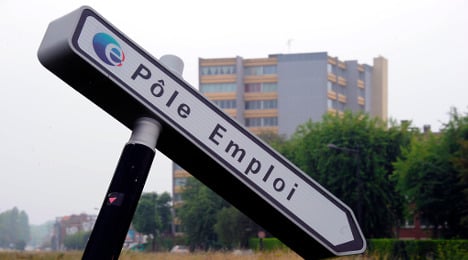The number of unemployed in France jumped to a new record on Wednesday, to 3.31 million people registered in January, prompting the government to pledge anew that it would buck the trend this year after failing to do so in 2013.
The number of new job-seekers rose by 8,900, the labour ministry said.
If those holding part-time employment were taken into account the number of unemployed rose to 4.92 million, another record.
France's Minister for Labour Michel Sapinsaid on Wednesday that unemployment rate must drop by the end of 2014 and said the monthly figures were not that significant.
"There must be less unemployed people [in France] at the end of the year than at the start. Do not look atthe figures from month to month," he said.
"We are in control of the unemployment rate which was at terrible levels," he told France's I-Tele TV on a visit to the annual agricultural fair in Paris. "What count's are the trends, what happens month by month has no interest."
France's Socialist President Francois Hollande, who is under fierce pressure to tackle unemployment, had claimed in November he had met his electoral pledge to halt the rise in joblessness by the end of 2013.
But this has not happened.
Hollande last month asserted that unemployment had "stabilised" but admitted that "this is not enough."
Labour Minister Michel Sapin said Wednesday that "all the government policies were centred on a single target that is understandable for all: that at the end of this year there are fewer unemployed people."
He said there were fewer unemployed youths this year as opposed to 2013, adding that the government would now focus to improve the condition of the aged who were without work.
Sapin sought to defend the figures, arguing that 8,000-plus new registered jobless was better than the 30,000 recorded at the start of last year.
The new numbers came after the government opened talks to flesh out a "Responsibility Pact" proposed by Hollande that would offer businesses tax cuts in return for more job hires.
Hollande said there would be 30 billion euros ($41 billion) in cuts to payroll taxes and further efforts to balance public finances with €50 billion in spending cuts over three years to kickstart growth and revitalise the
eurozone's second economy.
Figures released by the EU this week suggested France would not meet its requirements to cut public deficit this year.



 Please whitelist us to continue reading.
Please whitelist us to continue reading.
Member comments